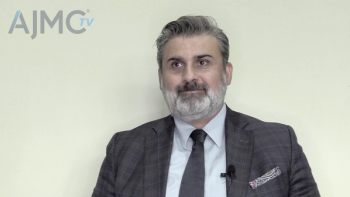
Dr Thomas Marsland on Financial Toxicity
Thomas Marsland, MD, talks about financial toxicity and the effect it has on patients.
Thomas Marsland, MD, talks about financial toxicity and the effect it has on patients.
Transcript:
While new, innovative therapies are often being developed in cancer care, these treatments can be extremely expensive. How is financial toxicity affecting patients, and how can it be mitigated?
So, I think that is the biggest challenge we face. We have these great new therapies, but they come at a fairly significant cost. But I think, as one of the other speakers mentioned this morning, the cost of the drug is only one part of a spectrum of costs. You know, it’s the cost of the administration, the cost of managing the toxicities, the hospitalizations, the emergency room visits [etc]. So I think, if all you’re looking at is the cost of the drug, and that drug is ‘x’, versus a drug whose cost is less—but if you’re looking at it as a continuum or more of what they call an episode of care, it may be that although the drug costs more, when you look at the total spectrum of care over a period of time, it may be that the drug actually saves money when you look at other pieces of the thing. A couple of the medical directors from several of the big payer communities have made a point that clearly drug cost is a significant piece, but it’s not the largest piece; I mean end of life care, you know… so appropriate planning, using the drug at the right time and for the right patients I think is one way that we can help to manage that cost and allow patients to get the type of care that they need.
Newsletter
Stay ahead of policy, cost, and value—subscribe to AJMC for expert insights at the intersection of clinical care and health economics.










